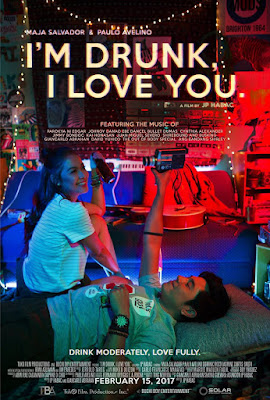THE HELP (Tate Taylor, 2011)
Racism is a very sensitive material to deal with in cinema. The slightest error or inaccuracy and people are quick to react. The reason is that racism is a very emotional issue; it speaks to the heart of the oppressed.
THE HELP, based on the bestselling book of the same name may be accused of the same skewed view that white people solve racism, which also happened with THE BLIND SIDE, the semi-controversial film that won Sandra Bullock her Oscar. While this may be true, I am inclined to believe such claim for THE BLIND SIDE rather than this movie. First of all, THE HELP's relevance and timelessness is easily felt.
Set in Jackson, Mississippi in the early 60s, THE HELP centers on Eugenia "Skeeter" Phelan (Emma Stone) and her observations in her hometown after returning from college. Seemingly the only woman left unmarried in her circle, her pals led by the narcissistic and self-absorbed Hilly Holbrook (Bryce Dallas Howard) have made it a mission to set her up with a guy. Even Skeeter's mom (a very subdued yet tasty performance by Allison Janney) can't wait for her little girl to find a husband. But Skeeter has other things on her mind.
Landing a job for the local paper which requires her to write a column on house cleaning, she interviews black house help Aibileen Clark (Viola Davis). But what started as a purely consultational relationship developed into a personal battle for truth and justice. Skeeter asks Aibileen if she can be interviewed for a book on her experiences as a help, how she felt raising all those white kids, and how she views her current situation and that of her fellow maids. The results are life-affirming.
Soon, Skeeter goes head on against the racist culture of her hometown, and soon enough more and more maids are coming to Skeeter to tell their stories. One such maid is the subversive but strong-willed Minny Jackson (Octavia Spencer), whose courage inspired not only Skeeter but the rest of the other maids.
THE HELP, despite its probing treatment on the subject of racism, provides plenty of humor and well-written (and played) characters to empathize with. The script is witty and its sarcasm bites like sunburn. The lines are memorable. The delivery of the actresses (who are the real stars of the story) are filled with conviction.
Viola Davis as Aibileen Clark is most notable. Her transition from humility to defiance and back to humility again is Davis's finest cinematic moment. Her portrayal of Aibileen as a triumph of womanhood, motherhood, and humanity is too powerful to ignore.
Octavia Spencer, in her Oscar-winning role is delectably delightful. As Minny, her strong persona captures the story's satirical tone, and provides the role reversal that such story requires.
Even Aunjanue Ellis as Hilly's new maid Yule Mae Davis is memorable in a supporting role. Screen legend Cicely Tyson who plays Skeeter's nanny Constantine brings further weight to the already heavyweight casting. Her character, being the most senior of all the maids in the story is representative of the numerous generations of slavery, inequality, and discrimination that needs to be corrected.
The social outcast element is not only on whites versus blacks, but also within the same skin color. Jessica Chastain, who plays Celia Foote is that one person all women in the society condemns. Like a leper, she is uninvited in social functions, and being hid to when she's around. Her only crime: being prejudiced at.
An Oscar nod should have been awarded to Bryce Dallas Howard. Her portrayal of the quintessential villain in the very soap operatic sense of the term, is true artistry. You can tell that Bryce, the actress not only performs but believes the idea that Hilly, the fictional character embodies. The outcome is a winning performance. Every raised eyebrow or cruel remark is chillingly delivered.
So why does it need to be a white woman who needs to solve racism? For me, it carries more weight. The realization and remedy must come from the oppressor. Only then can literary justice can be better attained in this case, I think.
This is one of those rare films I'd want to watch over and over without suffering the dragging pace and the guilt. Told with all sensitivities respected, and an equal side for both the privileged and the oppressed, THE HELP is a must-see, a feel-good film that unfolds deliciously with every frame.
RATING: 5/5

Comments
Post a Comment